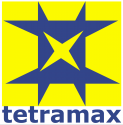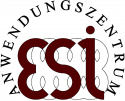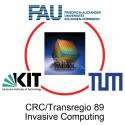12.4 Approximate Computing Works! Applications & Case Studies
Date: Thursday 12 March 2020
Time: 16:00 - 17:30
Location / Room: Stendhal
Chair:
Oliver Keszocze, Friedrich-Alexander-University Erlangen-Nuremberg (FAU), DE
Co-Chair:
Benjamin Carrion Schaefer, University of Texas at Dallas, US
Approximate computing leverages the fact that many applications are tolerant of incorrect results. This session highlights that by presenting methods and applications that optimize the trade-off between area, power and output error. At the same time it is important to ensure that the approximation approaches are scalable because complex problems are addressed. While some of these approaches completely work at the application level, others are oriented towards optimizing key subcircuits.
| Time | Label | Presentation Title Authors |
|---|---|---|
| 16:00 | 12.4.1 | TOWARDS GENERIC AND SCALABLE WORD-LENGTH OPTIMIZATION Speaker: Van-Phu Ha, Université de Rennes / Inria / IRISA, FR Authors: Van-Phu Ha1, Tomofumi Yuki2 and Olivier Sentieys2 1Université de Rennes / Inria / IRISA, FR; 2INRIA, FR Abstract In this paper, we propose a method to improve the scalability of Word-Length Optimization (WLO) for large applications that use complex quality metrics such as Structural Similarity (SSIM). The input application is decomposed into smaller kernels to avoid uncontrolled explosion of the exploration time, which is known as noise budgeting. The main challenge addressed in this paper is how to allocate noise budgets to each kernel. This requires capturing the interactions across kernels. The main idea is to characterize the impact of approximating each kernel on accuracy/cost through simulation and regression. Our approach improves the scalability while finding better solutions for Image Signal Processor pipeline. Download Paper (PDF; Only available from the DATE venue WiFi) |
| 16:30 | 12.4.2 | TRADING SENSITIVITY FOR POWER IN AN IEEE 802.15.4 CONFORMANT ADEQUATE DEMODULATOR Speaker: Paul Detterer, Eindhoven University of Technology, NL Authors: Paul Detterer1, Cumhur Erdin1, Jos Huisken1, Hailong Jiao1, Majid Nabi1, Twan Basten1 and Jose Pineda de Gyvez2 1Eindhoven University of Technology, NL; 2NXP Semiconductors, US Abstract In this work, a design of an IEEE 802.15.4 conformant O-QPSK demodulator is proposed, that is capable of trading off receiver sensitivity for power savings. Such design can be used to meet rigid energy and power constraints for many applications in the Internet-of-Things (IoT) context. In a Body Area Network (BAN), for example, the circuits need to operate with extremely limited energy sources, while still meeting the network performance requirements. This challenge can be addressed by the paradigm of adequate computing, which trades off excessive quality of service for power or energy using approximation techniques. Three different, adjustable approximation techniques are integrated into the demodulation to trade off effective signal quantization bit-width, filtering performance, and sampling frequency for power. Such approximations impact incoming signal sensitivity of the demodulator. For detailed tradeoff analysis, the proposed design is implemented in a commercial 40-nm CMOS technology to estimate power and in Python environment to estimate sensitivity. Simulation results show up to 64% power savings by sacrificing 7 dB sensitivity. Download Paper (PDF; Only available from the DATE venue WiFi) |
| 17:00 | 12.4.3 | APPROXIMATION TRADE OFFS IN AN IMAGE-BASED CONTROL SYSTEM Speaker: Sayandip De, Eindhoven University of Technology, NL Authors: Sayandip De, Sajid Mohamed, Konstantinos Bimpisidis, Dip Goswami, Twan Basten and Henk Corporaal, Eindhoven University of Technology, NL Abstract Image-based control (IBC) systems use camera sensor(s) to perceive the environment. The inherent compute-heavy nature of image processing causes long processing delay that negatively influences the performance of the IBC systems. Our idea is to reduce the long delay using coarse-grained approximation of the image signal processing pipeline without affecting the functionality and performance of the IBC system. The question is: how is the degree of approximation related to the closed-loop quality-of-control (QoC), memory utilization and energy consumption? We present a software-in-the-loop (SiL) evaluation framework for the above approximation-in-the-loop system. We identify the error resilient stages and the corresponding coarse-grained approximation settings for the IBC system. We perform trade off analysis between the QoC, memory utilisation and energy consumption for varying degrees of coarse-grained approximation. We demonstrate the effectiveness of our approach using a concrete case study of a lane keeping assist system (LKAS). We obtain energy and memory reduction of upto 84% and 29% respectively, for 28% QoC improvements. Download Paper (PDF; Only available from the DATE venue WiFi) |
| 17:30 | End of session | |















